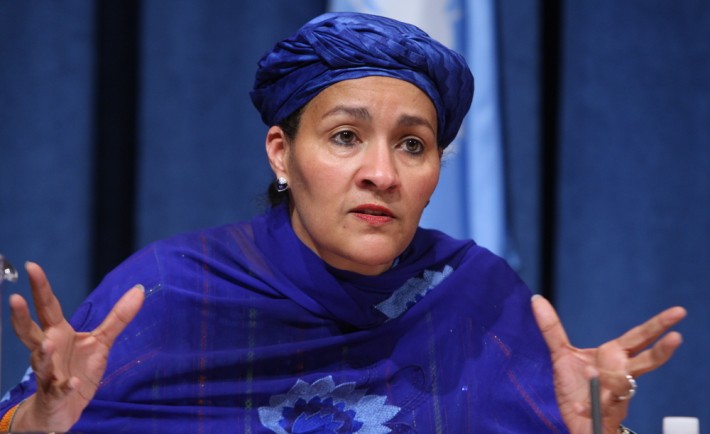Ms Amina Mohammed, the UN Deputy Secretary-General, says the demand for ivory may lead to the extinction of African elephants.
Mohammed said at the fourth observance of UN World Wildlife Day in New York on Friday that the planet had lost as much as 50 per cent of its wild animals and plants over the past four decades.
She said in some areas, more than half of wildlife and plants were lost due to climate change, habitat loss, over-exploitation, poaching and illicit trafficking.
“The demand for ivory poses an immediate risk to the survival of African elephants.
“Many other species such as cheetahs, pangolins, rhinos, vultures, sea turtles, sharks, tigers and high-value timber are also under pressure,” she said.
The UN deputy secretary-general said illegal trade in wildlife and wildlife products, including elephant ivory, high value timber and marine species, was a threat not only to sustainable development but also to peace and security.
“This sophisticated transnational crime is facilitated by corruption and weak governance, and managed by some of the world’s most ruthless organised crime networks – including violent extremists and non-State armed groups.
“Sustainable Development Goal 15 has a clear target to ‘end poaching and trafficking of protected species of flora and fauna and address both demand and supply of illegal wildlife products,” she said.
To combat the poaching and trafficking of protected species, Mohammed stressed the need to address both supply and demand.
She said strict enforcement of laws was important, so also broad awareness among policy makers, affected communities and consumers adding, conservation policies must be science-and livelihood-based.
She added that communities that lived in close proximity to wildlife must be given the incentives and the motivation to protect ecosystems and the precious heritage they contained.
“In Rwanda, conservation of critically endangered mountain gorillas has been successful because the government is committed to using tourism revenue to reduce poverty among communities neighbouring its National Parks.
“And it also works with young people, especially our young women. As consumers, we all have an important role to play.
“By supporting ecotourism and insisting on sustainable and fairly traded products, we can help protect habitats and improve opportunities for the communities that live with and depend on wildlife.
“And, by refusing to buy illegally or unsustainably traded wildlife products, we can reduce demand,” she said.
The UN deputy chief said this year’s observance day focused on engaging young people to protect the world’s wild animals and plants.
“On this fourth World Wildlife Day, we encourage young people everywhere to speak out and stand up for the world’s wildlife.
“And we ask everyone, everywhere, to listen to the young voices who are calling for a better world for all, where we can all live in peace and prosperity on a healthy planet,” Mohammed said. (NAN)
APT/AMY/AMY

